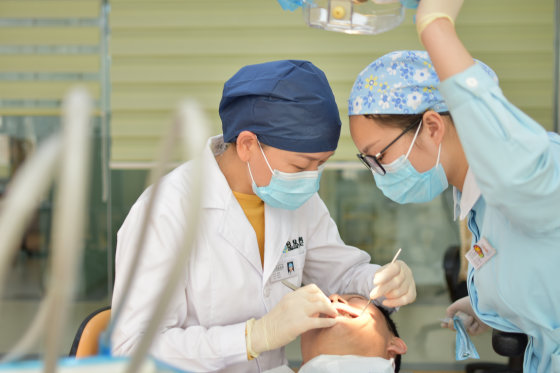WHO wants to 'avoid non-urgent dental exams'

Since the novel coronavirus infection (COVID-19) is mainly transmitted by the fly, the World Health Organization (WHO) said, ``The non-emergency routine dental procedures should be postponed until the COVID-19 infection rate is sufficiently low. Should be done.'
Considerations for the provision of essential oral health services in the context of COVID-19
WHO Is Now Asking People to Avoid Routine Dental Work. Here's Why
https://www.sciencealert.com/who-says-you-should-delay-routine-dental-work-due-to-coronavirus-risk
COVID-19 has been shown to spread infection with microparticles (aerosol) of saliva, and dental hygienists, dental assistants, and dentists who work for a long time while approaching the face of human beings are ``most COVID-19 Occupations at high risk of infection.'
What occupations are at high risk for new coronavirus infections? Visualizing the infection risk in an easy-to-understand manner-GIGAZINE

As a result, the number of dental clinics that have stopped operating around the world has increased due to the spread of infection, but it has been restarted in many countries over the past few weeks and months.
In response to this situation, WHO said, 'The non-emergency routine oral health care such as oral health check, tooth cleaning, preventive care, etc. has a sufficiently low COVID-19 infection rate such as community infection and cluster infection. Postponement is recommended.' WHO has a similar view on cosmetic dentistry. On the other hand, if there is an urgent problem that causes severe pain or impairs quality of life, he said that treatment should be given.

Aerosol is generated during operations such as tooth cleaning using an ultrasonic cleaner, implant placement, thread removal, and tooth surface polishing. For this reason, the WHO has listed in its guidance a wide range of treatments that can be achieved while minimizing the generation of aerosols.
WHO's Benoit Varennes pointed out that dental problems are not covered by health insurance in many countries, and that dental problems are affecting the lives of many people. In particular, he said that the pandemic disrupted dental services completely or partially in 75% of WHO member countries. In an interview with reporters, Varennes was concerned that dentists might not have the protective equipment to prevent COVID-19 infections.
Related Posts:
in Note, Posted by darkhorse_log







